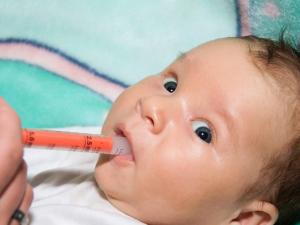Immunisation for babies up to one year old
Your baby will get vaccinated at two, three and four months old. Immunisation stimulates your baby’s body to produce antibodies, the natural defence against infection. Childhood vaccination lowers the risk of getting an infectious disease. Always keep infant paracetamol at home before you take your baby for their first vaccines.
Why your baby might not get a vaccine
There are some reasons why immunisation might not be right for your baby.
It’s important to tell your GP or nurse about any illnesses or allergies your baby has had.
Before vaccination, the doctor or nurse needs to know if your baby:
- has a very high temperature, vomiting or diarrhoea on the day of the appointment
- has had convulsions or fits
- had a bad reaction to a previous immunisation
- is allergic to anything
- has a bleeding disorder
- has had treatment for cancer
- has an illness that affects the immune system, for example leukaemia, HIV or AIDS
- takes medicine that affects the immune system, for example high dose steroids or treatments given after organ transplant or for cancers
- has any other serious illness
Knowing about your baby’s health helps the doctor or nurse choose the best immunisations.
A family history of illness doesn’t mean your baby can't have a vaccination.
Getting the vaccines
The Child Health system or your doctor’s surgery usually sends out your invitation to make vaccination appointments. Except for rotavirus and flu vaccines, your baby gets each vaccine as an injection.
It is important your baby has their vaccines at the right age. Your baby needs three vaccines against:
- diphtheria (D)
- tetanus (T)
- pertussis (whooping cough, P)
- polio (inactivated polio vaccine, IPV)
- haemophilus influenzae type b (Hib)
- hepatitis B (DTaP/IPV/Hib/HepB) (6 in 1)
Side effects of DTaP/IPV/Hib/HepB vaccine
After vaccination, some babies experience mild side effects including:
- feeling irritable
- a mild fever
- a small lump for a few weeks where they had the injection
If your baby shows any other reaction to the vaccine, tell the doctor, practice nurse or health visitor.
Allergic reactions to a vaccine
On rare occasions, babies may experience an allergic reaction to a vaccine, which can cause:
- a rash or itching
- difficulty breathing or collapse, also known as anaphylaxis
Anaphylaxis
Anaphylaxis can happen within minutes of a baby getting vaccinated.
This reaction means your baby is allergic to an ingredient in a vaccine.
It’s a worrying and rare side effect that can be treated to allow a quick and full recovery.
Before your baby has further vaccines, you must tell the doctor or nurse about any previous allergic reaction.
When a baby has a fit after vaccination
Having a fit is a rare side effect of the vaccine. A baby can have a fit due to a very high temperature.
Pneumococcal vaccine (PCV)
Your baby needs to get the PCV when they’re three months old. The vaccine is given as an injection.
This vaccine protects against:
- a common cause of meningitis or blood poisoning (septicaemia)
- severe ear infections
- pneumonia caused by very common types of pneumococcal bacteria
Side effects of the PCV
After vaccination, one or two babies in every 10 experience side effects, including:
- swelling, redness or tenderness where they had the injection
- a mild fever
Very rarely, babies can have an allergic reaction to the vaccine.
Getting a second dose of the PCV
Your baby will need a second PCV injection shortly after their first birthday.
Rotavirus vaccine
Your baby gets the rotavirus vaccine when they’re two and three months old. They are given this vaccine as a liquid into their mouth. The vaccine protects against a virus that causes a serious gut infection.

Your baby cannot start a course of the vaccine if they’re over 15 weeks old.
They cannot get the second dose if they’re over 24 weeks old.
To read about symptoms of rotavirus, go to:
Side effects of the rotavirus vaccine
After vaccination, some babies might be restless, irritable or have diarrhoea. In very rare cases, the vaccine affects a baby’s gut. Your baby might:
- have stomach swelling
- vomit
- pass blood
If your baby has this reaction, they will pull their knees up to their chest in pain. Contact your doctor immediately if your baby has these signs or symptoms.
Meningococcal B vaccine (Men B)
Your baby needs the meningococcal B (MenB) vaccine when they’re two and four months old.
The vaccine is given as an injection.
It protects against an infection that can cause meningitis and blood poisoning (septicaemia).
Meningitis B is the most common strain of meningococcal bacteria in Northern Ireland.
Side effects of the MenB vaccine
After vaccination, some babies:
- have redness, swelling or tenderness where they had the injection
- are irritable
- feed poorly
- have a fever
Getting a third dose of the MenB vaccine
Your baby will need a third meningitis B vaccine shortly after their first birthday.
Infant paracetamol
To prevent your baby having a temperature after MenB vaccination, give them infant paracetamol.
Even if your baby shows no signs of fever, give them three 2.5ml doses every four to six hours.
If your baby has a very high fever or you think they are unwell, contact your GP.
Yellow Card Scheme
A parent or carer can use the Yellow Card Scheme to report side effects of vaccines and medicines.